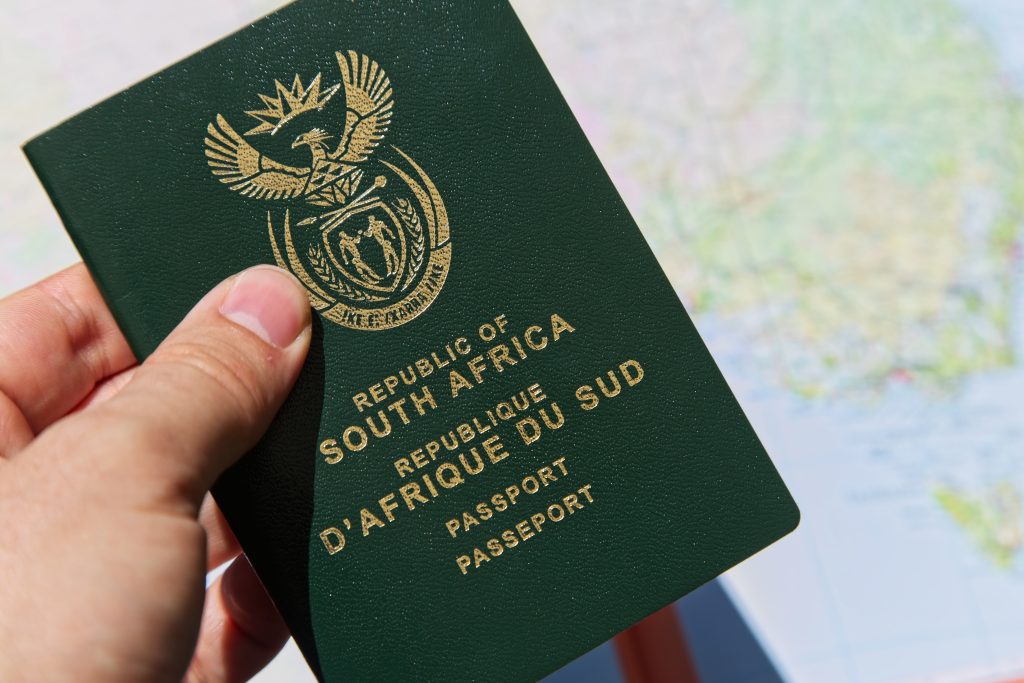What every parent whose children want to work abroad should know
It may be exciting when your child decides to work abroad to explore new horizons, but it also leads to unique challenges and possible dangers. AfriForum Worldwide regularly receives questions from parents whose children got into trouble because of invalid work visas, false work offers or misleading employers. For these reasons, parents and children alike should be well informed before making any decisions in this regard. Here are some red lights that you should be on the lookout for, as well as a few practical tips.
Watch out for these red lights
1. Understand the importance of legal work visas
Employers and agencies may make false promises or offer illegal work visas. It is the responsibility of the employee (i.e., your child) to ensure that their visas are legal and valid for the country in which they plan to work. Some employers or agencies offer appealing jobs and claim that a tourism or student visa is sufficient for the job. It is illegal, however, and may lead to some serious consequences, for example deportation, large fines and even banning from entering the country again.
2. Too good to be true?
A job offer that sounds too good to be true is usually just that: too good to be true. This includes jobs where large salaries are offered, but that do not require applicable qualifications or job interviews.. Dishonest employment agencies often ask prepayments for visas and airplane tickets – and then simply disappear afterwards. Do thorough research on any agency or employer before your child signs or pays anything.
Make sure that the company making the employment offer is registered and legal. Use reliable websites or professional service providers to make enquiries. Look for reviews about the employer or agency, and request contracts that clearly define and describe the salary, employment environment and accommodation.
3. Social isolation and exploitation
Some employers use tactics such as isolating workers or limiting their movements. Make sure your child has access to communication and support.
4. Illegal employment practices
Many young people end up working under illegal circumstances, which make them vulnerable to mistreatment and deportation. Ensure that your child has the correct work permit and that their employer is registered legally.
Conclusionary warning signs:
- No written contract: Verbal promises are unreliable.
- Irregular requests: If your child is requested to hand over their passports to the employer, it is a major red light.
- A lack of clear communication: Stay clear of agencies or employers who are unclear or ambiguous about their procedures.
- Unrealistic expectations: Stay clear of employment that falls outside the regular responsibilities or that requires unreasonable hours.
Tips for parents and children to keep safe
1. Do not rely in the state
According to international law, no state is required to always come to their citizens’ aid. Their help will depend on many things, including
- why you are abroad,
- whether any treaties exist between South Africa and the country in which you are, which may either allow or prevent such help, and
- whether assistance is executable or whether your country has the resources and knowledge to act when you need assistance.
Calculate your risks before you depart. If you do not feel comfortable, do not go.
2. Do not take along packages for anyone
Even though you are 100% sure about the content of such packages, the best advice is still not to do it. Smugglers are sometimes the people from whom you expect it the least.
3. Familiarise yourself with the country’s employment and other applicable legislation
Every country has its own unique legislation that governs employment, visas and employment practices. Your child should study the employment and other applicable legislation of their new destination. If they work in certain countries without the necessary permit, it can have dire consequences, including arrest and deportation.
4. Understand the culture
Prepare your child for the cultural differences and how to work and live in another culture with respect and understanding.
5. Good planning is non-negotiable
Ensure that all documents – including employment contracts, visas and passports – are valid and legal. Your child should always have certified copies of these documents as well as digital copies. They should also have sufficient health, employment and travel insurance. Help them compile an emergency plan for example having the contact numbers at hand for the south African embassy in the country they are travelling to.
6. Communicate with your child regularly
Make sure that you and your child communicate often. Also ensure that you have other ways of keeping in contact with your child, for example by obtaining the telephone numbers or email addressed of their friends who are travelling with them or who are already there.

7. Insurance and health cover
Ensure that your child has the necessary health care insurance and that they know how to obtain medical care when necessary.
Closing thoughts:
Be careful of the snake in the grass.
Whether your child is on their way to China for holiday work or are simply booking a tour to Rome, be careful of people who want to throw dust in their eyes. If they get the opportunity to work overseas, make sure that they also know the country’s employment regulations and visa requirements. Check the name and address thoroughly to eliminate any scams and try to talk to more than one contact person. The chances of a scam are greater if:
- they receive an employment offer without having had an interview,
- it is expected of them to make payments before being provided with more information,
- the job description is very abstract,
- the process is too easy, or the job or salary is too good to be true, and
- they do not receive their work visa before departure.
It can be an exhilarating experience to work abroad, but it requires thorough planning and responsibility. It is quite natural for parents to worry when their child takes on the unknown, but parents play an important role in ensuring that their children are well informed of the potential risks and how to avoid these. With the corrects support and information, young people can enjoy their international employment experience without falling into traps.
Photo: Ahmed/ Unsplash




















